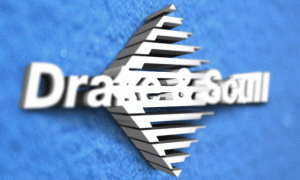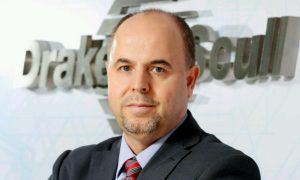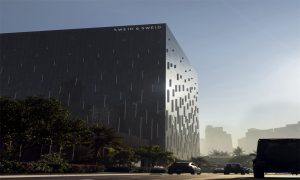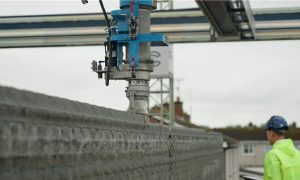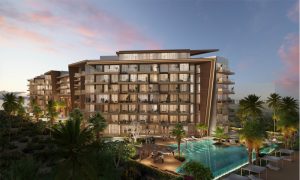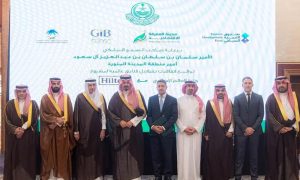In profile: Wael Allan on bringing Drake & Scull back into focus
Big Project ME meets with Wael Allan, the new CEO of Drake & Scull International, to hear about how he intends to return the contractor to its roots – and back to the top

On February 14, 2017, Drake & Scull International released its un-audited, preliminary financial results for the fiscal year ending December 31, 2016. With the contractor having endured a few difficult years recently, the figures finally brought some much-needed love to the Dubai construction giant.
In the 2015 fiscal year, the company had posted a net loss of $255.65 million. In comparison, the FY2016 figures showed that it had made a net loss of $214.27 million, while its ongoing order backlog hit $2.20 billion at the end of 2016.
Furthermore, the total value of project awards secured in FY 2016 stood at $221.89 million, with the UAE and the Engineering business accounting for 23% and 72% of the backlog respectively, a reflection of DSI’s strategic ongoing focus on its core home market and engineering business.
Although there continue to be significant liquidity challenges in the regional construction industry which continue to impact DSI’s operations and performance, things are actually looking up for the contractor, says new CEO Wael Allan, who took over when Khaldoun Tabari stepped down in October 2016.
A chief reason is the news that Tabarak Investment, a UAE-based investment firm, has injected new capital worth $136.13 million into DSI, subject to the approval of DSI shareholders and the Emirates Securities and Commodities Authority (SCA).
This much-needed investment comes on the back of Allan’s appointment as CEO, and is part of a wider turnaround plan being implemented by the contractor’s new management team. In Q4 2016, PricewaterhouseCoopers (PWC) was appointed to help oversee the implementation of this turnaround, as Wael Allan and his team looked to bring DSI back to its roots.
With all this going on, the coming year is shaping up to be a crucial one. Five months into his tenure as CEO, Big Project Middle East caught up with Allan at his offices in IMPZ to find out how the restructuring and reshaping of one of Dubai’s more venerable contractors is going.
“Personally, for me 2016 has been one of the toughest years in my career. We had difficult market conditions generally, and actually I’m not sure that there won’t be any more difficulties than last year. For me, it’s about bringing into focus what our clients really want and what they really need. I think in the heat of battle we can lose focus of what is important,” he says, in reaction to the financial results, which were released the day before the interview.
“What went right last year was that we brought in a good management team that is focused on clients’ needs and on aligning the company with our clients. My view is very simple – without clients, we have no purpose in life. At the end of the day, they are the people who give us our revenue, and our relationship with them determines how profitable we are – and in fact, determines our reputation at the end of the day.”
Speaking about Tabarak’s decision to invest in DSI, Allan highlights the impact it will have on the company, not just in terms of monetary benefits but also with regard to the contractor’s reputation in the market, following a difficult few years.
“That’s just proof to show that they really understand and appreciate that Drake & Scull has great fundamentals and good foundations. Obviously, we’ve been through tough times, but I see now light at the end of the tunnel for all of us with the company.
“I feel that they’re really a strategic partner. Somebody who’s willing to put a significant amount of money into the company and not just support us financially, but also support us operationally. From what I’ve seen already from some of the people proposed to come on the board, they’re people who understand business very well and are commercially astute. It’s bringing a momentum of change.
“With a serious UAE-based investor like Tabarak, I really feel like we’ll see great results that will help us in the local markets in the UAE, which is our backyard and main home market. I’m looking forward to some really good opportunities to work with them,” he asserts.
Change is something Allan is very keen to bring to DSI. He initially came on board as chief operating officer in April 2016. Since then, he has focused on putting together a team that will have a good dynamic between members, a sense of alignment with where he wants to take the company, and most importantly a sense of trust between all parties.
“What was really important for me, along with obviously taking the ship in a certain direction, was that I wanted to make sure that the people that were with me and in the team were all aligned and supportive of the vision and direction. It’s about trust, confidence and support for one another. I really feel that with the team we have, all those dynamics are in place.”
With the majority of the company’s revenue coming from the key markets of Saudi Arabia, Qatar and the UAE, Allan states that for the foreseeable future, the focus will be on consolidating DSI’s presence in these markets. Saudi Arabia is especially important, given the challenges that market poses – oil prices going down, jobs being cancelled and substantial dues being owed from previous clients, he outlines.
“Saudi Arabia is a unique market in a way. I don’t think you can run it remotely or without getting too involved in it. I would say that we could have done things better in Saudi Arabia. We’re looking to make sure that we focus on our core competencies in KSA.
“I think we ventured into the general contracting arena in Saudi Arabia when maybe the market was extremely competitive. Maybe we did not appreciate how much effort we needed to put in. So now what we’re doing in Saudi is continuing our business there, clearing some of the legacy issues and pursuing our claims vigorously, but also focusing on our core competencies of bidding for MEP work.
“Selectivity is key – (not) only in Saudi Arabia, but also in the UAE and Qatar. So that means we choose clients we can align closely with in terms of objectives and that we have a good working relationship with,” Allan states bluntly.
To that end, the priority is returning DSI to its roots, and while refocusing on its core competencies of MEP might sound regressive, Allan asserts that there will be no room for complacency; his ambition is for the contractor to be the number one in these main markets.
“At the end of the day, why do people come to Drake & Scull? It’s for our MEP capability. It’s a great brand name, with more than 100 years of experience in MEP. Our strategy is very simple – we want to be number one in any market that we play in, in the MEP arena.
“If you ask me, can we be number one in Dubai’s MEP market? Of course we can. Can we do the same in Abu Dhabi? The answer is yes. Can we become number one in Saudi Arabia? We’re certainly in the top three and we can get there. The same applies to Qatar.”
However, when it comes to an international market, such as India for example, he concedes that this may not be so easy to achieve. With intense competition in the Indian MEP market, Allan says that in the long run, DSI will look to exit and focus the company’s energies on its successful wastewater treatment firm, Passavant Energy and Environment, which is doing well there.
Of course, as a business entity, DSI’s fingers are in more than one pie. The company currently has operations across a number of market sectors: Rail and Infrastructure, Oil & Gas, Energy and Environment, Engineering, and Construction.
Although he intends for the company to return to its core competencies of MEP, Allan explains that operations in these sectors will continue, although some will need to reassessed and looked at with an eye towards the future performance and growth of the company.
“We’ll continue to play strongly in the infrastructure area, in the building area and as well in the energy and environment area. Passavant is really our vehicle for the energy and environment market sector. Much of what is done in Passavant is very close to what we do in MEP, so it’s really an extension of our core competencies in the MEP area.
“And again, with the oil & gas market sector – where we perform extremely well – we’re very comfortable in that area, and it’s really an extension of our MEP capabilities. But I think where we’ve decided that we’ll exit is general contracting in all areas, except for the UAE, where we have a company called GTCC. I think we’ve gone through the learning curve, we’ve paid for it, and I feel that we’ve got something valuable there. We could make a difference and contribution to the general contract landscape in Dubai, and possibly in Abu Dhabi.
“I think that our view is that in times of distress, we want to create stability and focus back on our core geography and home markets, so we would be less interested in expanding outside. Other markets, where it’s opportunistic or unsustainable in the long run, we’re probably going to look at maybe exiting those markets.
“Our primary idea is to retrench back to the base and focus on our core competencies and geographies, but it’s an ongoing process. As you know, exiting a construction market is not as easy as just making the decision. Of course, we’re keen to ensure that we fulfil our existing obligations and finish whatever we’ve committed to, but I think going forwards selectivity is high on our agenda, in terms of geography, clients and market sectors.”
As part of this shift in strategy, Wael Allan adds that the changing nature of the construction market in the GCC also opens up new opportunities for Drake & Scull International as it looks to adapt to the changing attitudes and trends in the region.
To this end, the new CEO states that although the contractor will be returning to its MEP roots, it will also have to move up the value chain by embracing technology and sustainability concepts. At present, some 60% of budgets proposed when bidding for a job are actually used on materials and equipment. Therefore, the selection of materials becomes a key factor in achieving sustainability goals, he says.
“We want to create an excellence centre in terms of engineering capabilities and actually endorse more of an EPCM model. Our strategy operationally is to do more engineering in-house and move towards modularisation and prefabrication, which will cut down on time, increase quality and also design sustainably early on.
“Bringing design and field operations of construction together is key for us, and we will adapt aggressively. I believe the long-term solution and vision for us, to enhance our profitability and to become a double-digit profit business, is to embrace more innovation. So that means increasing our technical and engineering capabilities through BIM, through sustainability and through the better selection of materials and equipment that we use in our work,” he asserts.
Of course, while it is key to evolve and adapt to a changing environment, Allan is realistic enough to know not everything can be done in-house, especially when the company is working to regain its sense of identity. To this end, he reveals that he is encouraging his team to look at a “good split between direct hire and subcontracting”.
“Any excess will probably have to be done through subcontracting. It’s about knowing our supply chain and managing that really well, and making sure that we get into good, effective partnerships with some of our supply chain. This will ensure that we get the best value and services to our clients and stakeholders,” he adds.
As the former regional head of consulting and engineering giants Hyder Consulting and Arcadis, Wael Allan is probably one of the most informed people in the region when it comes to understanding the distinct challenges that arise in the relationship between consultant, contractor and client. Now that he is at the head of one of the region’s foremost contracting firms, he tells Big Project ME that there needs to be a shift in the way all parties in the industry do business, given the challenging circumstances the construction sector is facing.
“I think the problem generally is that there are too many players or fingers in the pie. Alignment is absolutely key. There needs to be a delivery model that aligns the client’s objectives with the consultant, or the consultant and the contractor. They must align their objectives with what the client wants. In some cases, that is definitely not the case. You have different people pushing in different directions. The lack of alignment causes a lot of conflict and problems which delay payments, progress and quality.
“I’m a strong advocate, more and more, of the EPCM model, where it’s all in-house and you engineer everything, buy the equipment, execute it, commission it and deliver it,” he says, highlighting why he has been keen for DSI to move in that direction.
“Hopefully, this sort of issue will encourage our clients to think differently about how they procure and award projects. There is some work to be done in that area, and I think as contractors and consultants, hopefully we should contribute positively to that discussion and get things done in a much better way.”
And while he acknowledges that low oil prices will continue to pose challenges to the construction industry, he points out that it also affords the sector an opportunity to rethink the way it works on projects. This extends to both pricing and execution.
“At times when cash is abundant, people may forget the fundamentals. I think the fact is that low oil prices will weed out the weak, and I think only the good will remain. I have to say that we are questioning the way we do things – the way we conduct business, and the way we’re looking to increase productivity and efficiency.
“So while I think it’s been very difficult for all contractors, and all our supply chain, I think we’ll come out of this much stronger and wiser than we were before,” he concludes.


